In the 2022 cycle of the Hero/Heroine’s journey at Home Again Nancy King commented that she had never been Home until now. I am excited to welcome Nancy to share her mythological understanding of her Home Again experience.
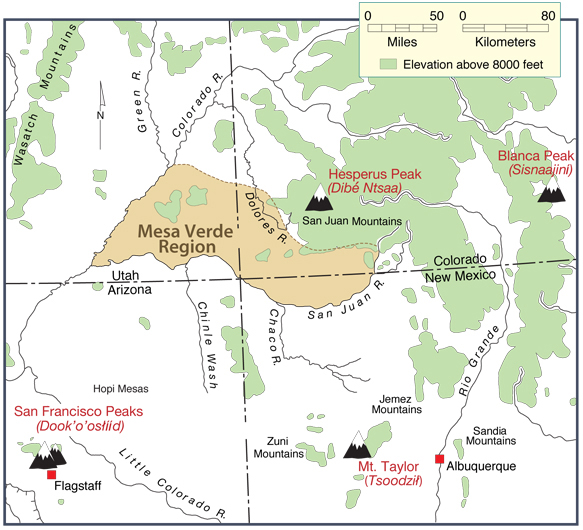
Map by Neal Morris; courtesy Crow Canyon Archaeological Center.
I was 48 in April 1985 when I was diagnosed with a rare and anomalous form of leukemia. The prognosis was I had two years to live. Just when I was sort of accepting my early death, through fortuitous circumstances, I was invited to participate in a protocol, taking an experimental drug, erroneously thought to be a cure, but it did keep the disease at bay.
I needed solace. Comfort. As a lifelong lover of stories, a Tewa story from the Santa Fe area of New Mexico spoke to me, becoming my companion. I told it to myself while I waited for blood transfusions, blood tests, and examinations. As I sat in the waiting room, facing life and death, the story saved me from despair, from suicide.
Here is the story:

Photo Credit: Ahmad Kanbar, Unsplash
The story begins with the People bumping around in the dark, asking: “Is this all there is? Will there never be anything more?”
Then, a strange creature appears. The People ask: “Is this all the world there is?”
The creature, Mole, answers,” I do not know, but sometimes I go to a place that feels different.”
“How is it different?” someone asked.
“I cannot tell you for I am blind. All I can say is that it feels different.”
One brave person asks, “Will you take us to the place that feels different?”
“Yes,” answers Mole, “but you must know that when I travel, I dig out the earth in front of me and place it behind me. If you come with me, you can never return to this place you call home.”
And so it was. The People followed behind Mole as she burrowed her way to the place that felt different, digging the earth in front of her, passing the earth back to the People, who put it behind them. It was a long and difficult journey.
Then, without warning, Mole said, “This is the place that feels different. This is where I must leave you.” No one knew what to do. It did feel different—not as dark, not as cold. A few ventured into a place that hurt their eyes so badly they retreated into the dark, crying and moaning in pain. Now there were many who wished they’d never left the place they knew, where they had lived for so long.
In the dark, nursing their eyes, the People heard a kind voice speak to them. “Hush my children, do not cry. Listen to me.”
“Who are you?” they asked.
“I am your Grandmother Spider. I am here to help you. If you do as I tell you, all will be well. Your eyes hurt because they are not used to light. The sun is very bright. When you walk outside, keep your fingers closed in front of your closed eyes. Shortly, open your fingers but keep your eyes closed. Take a few breaths before you open your eyes. Even then, do not look at the sun for it will hurt your eyes. Do as I say. Your eyes will thank you.”
People followed Grandmother Spider’s advice and it was as she promised. Their eyes learned to see light. But, all too soon the light began to disappear. Not knowing what to do, the People huddled together in the dark, wondering what was going to happen, waiting. They had never known day and night.
Once again Grandmother Spider spoke to them. “Hush my children, do not cry. All will be well if you listen to me. The light will return. When it does, you will see four mountains. To the north is White Mountain. Do not go there for you will find only ice and snow. To the east is Red Mountain. Do not got here for you will encounter fierce creatures who will attack you. You will bleed to death. To the west is Black Mountain. Do not go there for you will find only darkness. Your crops will not grow. You will starve to death. To the south is Green Mountain. It is the furthest and the way is uncertain, but if you keep your eyes open you will know how to travel. And, when you see a creature who reminds you of Mole, but is not Mole, and a creature who reminds you of Grandmother Spider, but is not Grandmother Spider, you will know you have arrived at the place that is home.”
Just as Grandmother Spider foretold, the light did return.
Some people did not want to walk to a far and uncertain place. They went to White Mountain and never returned.
Some people did not want to walk to a far and uncertain place. They went to Black Mountain and did not return.
Some people did not want to walk to a far and uncertain place. They went to Red Mountain and did not return.
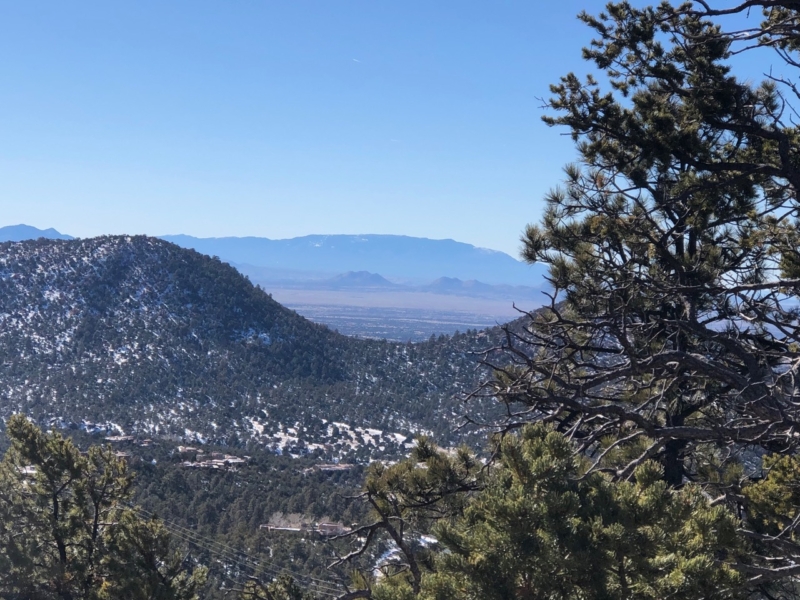
From Red Mountain Looking at Green Mountain. Photo Credit: Nancy King
Only one woman and one man were left. Even in the bright sunlight they could hardly see Green Mountain. The woman said, “None of those who have gone have returned. Let us listen to Grandmother Spider’s words. We must walk to Green Mountain if we wish to survive.” The man agreed. They began walking toward the south, toward Green Mountain, which they could barely see.
They walked, not knowing the path, walking toward the mountain that seemed to keep its distance. They kept walking, despite their fatigue and discouragement. It was all they knew to do.
One morning, when they stopped to rest, the woman saw a strange creature passing by. Cautiously, she moved closer to it.
The man said, “Be careful, it might be dangerous.
Curious, the woman kept looking and when she crept near enough to see the markings on the creature’s back, she told the man, “Look! It reminds me of Grandmother Spider.
When the creature heard the woman’s words, it pulled in its head. “Oh,” said the man, “It cannot see where it is going. It reminds me of Mole.
The woman and man looked at each other, remembering the words of Grandmother Spider. They had come to the place that was home.

Photo Credit: Jose Ruales, Unsplash
Like the People in the story, I was in the dark, bumping against the effects of a rare blood cancer that left me weak, tired, and disheartened.
Like the People in the story, I chose to leave the darkness, by enrolling in a cancer treatment protocol, taking experimental medicine. But, like the People in the story, leaving the darkness led to more challenges: the medicine had continuing multiple and difficult side effects.
Like the People in the story, I could not go back to how I had lived before becoming ill.
Like the People in the story, I followed, not mole, but doctors who knew little about the disease, whose advice and treatment too often were wrong.
Like the People in the story, if I wanted to live, I had to follow the dictates, not of wise and benevolent Grandmother Spider, but oncologists who did not like to be challenged.
When I experienced flu-like symptoms that left me feeling ill and depressed, doctors denied this was a side effect. I felt like the People who’d gone to the White cold Mountain, frozen with fear. When a doctor suggested what I was experiencing was my imagination, I felt I’d gone to the Black dark Mountain, done in by despair. In a university bathroom I collapsed in agony, hemorrhaging, not knowing how to stop the bleeding. I felt as if I’d gone to the Red blood Mountain, dying of bad blood.
While participating in the Human Capacities Program led by Jean Houston, I suddenly fell to the floor in an agony of muscle spasms. She asked, “Why are you always pulling the rug out from under yourself?” Her strident certainty made me question my experience: Was she right? Was I metaphorically pulling the rug out from under myself and blaming the medicine? How could I regain trust in my body? For two days I walked to and from the conference center on crutches, feeling much like the People, fearing what they didn’t know, with no way to return to what they knew. Desperate, I wondered if Grandmother Spider could help me, even though it wasn’t the sun hurting my eyes, it was the medicine I was taking to keep me alive. Sitting in the waiting room, with my eyes closed, I imagined being in the dark—worried and afraid. Suddenly, I felt Grandmother Spider’s calming presence.
“Hush Child. Be comforted. Do not listen to words spoken in fear, unkindness and frustration. Do not despair. You will find your way. Healing cannot be rushed or controlled. It will happen in its own time and way.”
In 2000, when I was 64, my son and I were visiting friends in Santa Fe who suggested their realtor show us some houses. I was only looking, but as soon as I walked into the triangle house, a three-sided house with two floors, facing south, east, and west, full of light and odd angles, I felt I had to live in it. Two hours later I bought it, went home, and quit the university teaching position I’d had for 34 years. In 2001 I moved from a Delaware community where I’d lived for 37 years to New Mexico, to live in a house I’d been in for less than 15 minutes. In Delaware I had the only yucca plant in the area. In New Mexico they are everywhere. I didn’t realize until I’d lived in New Mexico for some years that this too pointed to my moving to New Mexico long before it was a reality for me.
Every aspect of buying and moving made me feel as if some unknown force was supporting me. I practically emptied my stock market accounts to buy the house; two weeks later the stock market tanked. When a friend asked how I was going to New Mexico. I told her I’d have to fly since I didn’t feel comfortable driving by myself with a sick cat. “I’ll go with you,” she offered. Even my cat cooperated. He was a “throwup” cat, but during the three days we lived in a friend’s house, he never threw up. When I snuck him into a motel, not wanting to pay the extra pet fee, not only did he not throw up, but my territorial cat spent half the night with me, half the night with my friend. And, when we stayed for a few days in a friend’s house while waiting for the movers to come, he never threw up. It was only after the furniture was in place, and I brought him to our new house, that he released what he’d been holding. He threw up in every room. It felt as if it was his way of letting me know. We were really home.
Now, living in Santa Fe, in Tewa country, I know White Mountain is Taos Mountain, Black Mountain is the Jemez, Red Mountain is the Sangre de Christos, and Green Mountain is the Sandías. I have hiked in all these mountains, and in every one, I feel the presence of Grandmother Spider, ready to welcome me home when I return to my triangle house.
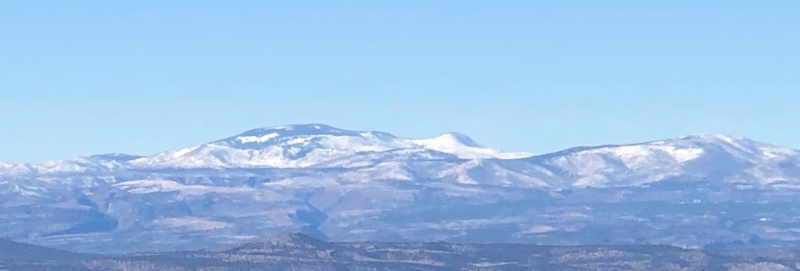
The Black Mountains to the west. Photo Credit: Nancy King.
Some years ago, two friends and I visited a nearby Native site where we listened to our guide generously share some of the history and stories associated with our area. I was still thinking about what I’d just heard when one of my friends said, “Nancy is a storyteller. She knows a lot of Native stories.” I was stunned. Mortified. Incredulous. Embarrassed. I wanted to sink into the stone floor. “Go ahead, tell a story,” she urged, apparently not realizing what she was asking.
While I was trying to think of an apologetic response, our guide, his face neutral, his voice impassive, said, “Please, I’d like to hear a story.” There was an uncomfortable silence. No way out. No way not to tell one. I chose the Tewa story, the story that lives in my heart and has comforted me during so many difficult situations, knowing I was probably telling a story he knew well since it was from the area in which he lived.
After I told the story there was another long silence. When he spoke, he said, “Thank you for telling my story from your heart.” I bent my head in a kind of prayerful thanks. He did the same. I felt the story connected us on a deep level that transcended our differences and experiences. Stories told from the heart to a thoughtful audience are a shared treasure.
Questions for Reflection:
The power of a story depends on where we are in our lives when we read or hear the story. Have you found one that touches you, leaves you wanting to enter into the story, to find your way into the story’s story, to have an adventure of the heart? How do you live with the story that chooses you?
How do you define home? Is it a physical place? A feeling? A person? If where you grew up, the home in which you lived, was never a welcoming, safe, place, how do you find a home within yourself that nourishes and comforts you?
What does it take to start a new life in a new place where you don’t know anyone, where you will no longer be doing the work you have done for most of your life, that helped to define who you are? How do you create the power of coming home to yourself, to the knowing that this new place is home for the first time?
Stories come from specific peoples and cultures and communities and yet, a story can live in our heart no matter our distance from the story’s origin. What is it about a story that touches us, that calls us to cherish it? How do stories live in your life?
Please share your thoughts in the comments. Send an email if you prefer, and I’ll be sure that Nancy receives them.
About Nancy King
Nancy King has many credentials that make her résumé impressive. Her most current achievement is the publication of her memoir, Breaking the Silence, an intimate exploration of a life, both begun and lived within, abusive situations. She tells how, through the writing and telling of stories, she finds ways to become aware of, and work through, old patterns. Please visit her website: nancykingstories.com to read her monthly stories and to learn more about her books and teaching.

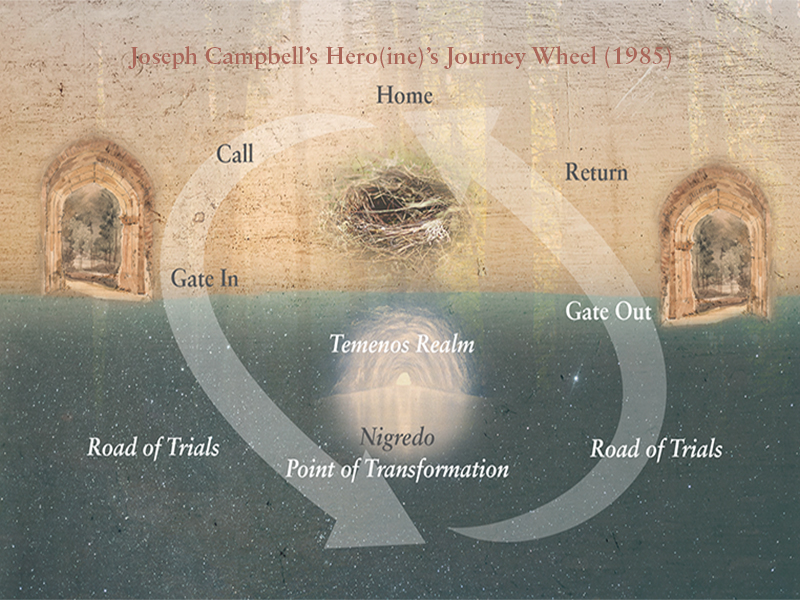

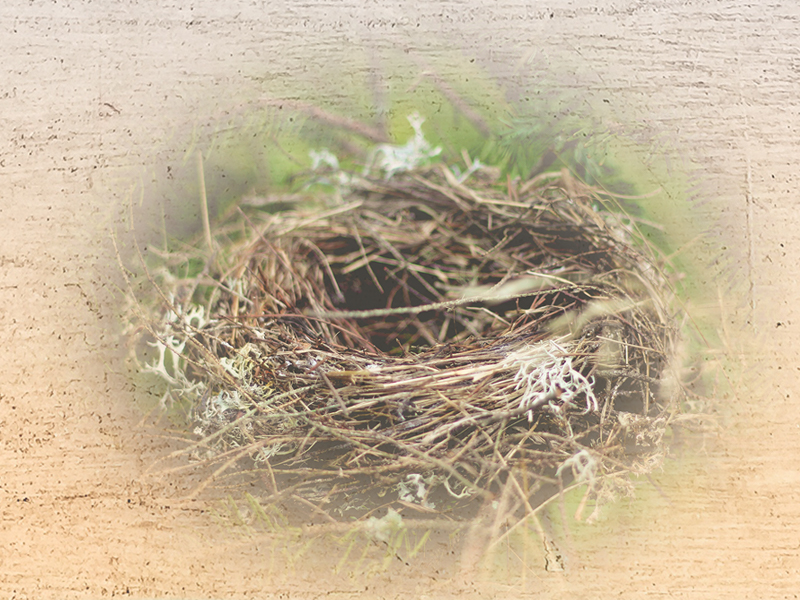

As always, Nancy shows us the power of storytelling. It’s hard to believe how a story can be so transforming. When we find the story that keeps us alive, buried inside us then we know we have a reason to survive.